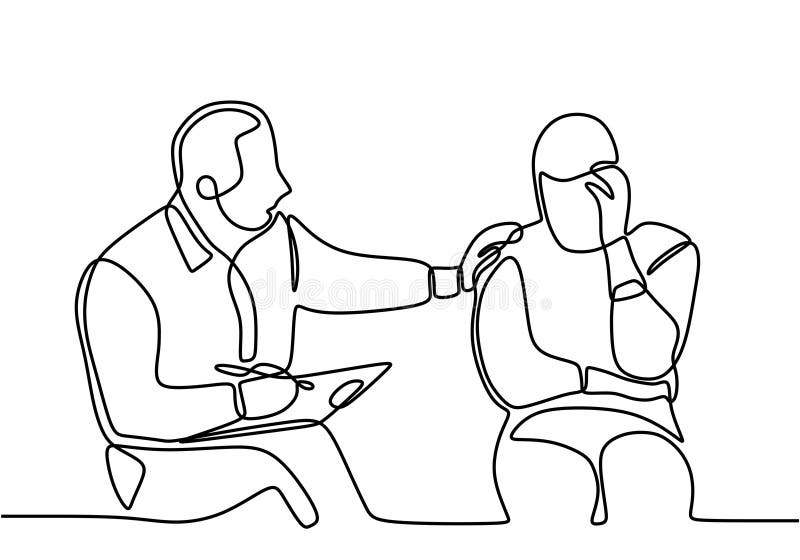Leading Factors to Consult the Best Psychologist in Delhi for Your Emotional Wellness
Leading Factors to Consult the Best Psychologist in Delhi for Your Emotional Wellness
Blog Article
Psych Therapy: A Comprehensive Guide to Techniques and End Results

Cognitive-Behavioral Treatment
Cognitive-Behavioral Therapy (CBT) is a commonly used psychotherapeutic strategy that focuses on identifying and modifying dysfunctional thinking and actions patterns. Developed in the 1960s by Aaron T. Beck, CBT integrates behavioral and cognitive concepts to attend to various mental health problems, consisting of clinical depression, anxiety, and stress-related conditions.
Methods such as cognitive restructuring, exposure treatment, and skill-building workouts are typically utilized. Cognitive restructuring entails challenging and changing negative idea patterns, while direct exposure treatment intends to minimize concern and anxiousness with gradual exposure to feared situations or items.
Evidence-based study sustains the effectiveness of CBT for a wide variety of mental disorders - Best Psychologist in Delhi. Its focus on skill procurement and self-help techniques empowers clients to proceed progression separately after treatment wraps up. The adaptability and performance of CBT have made it a cornerstone in contemporary psychotherapeutic method
Psychodynamic Strategies
Rooted in the very early concepts of Sigmund Freud, psychodynamic techniques concentrate on discovering the subconscious mind and its impact on behavior and emotions. These techniques aim to discover hidden thoughts and sensations that may be driving maladaptive habits and emotional distress. Central to this method is the idea of internal problem, frequently stemming from unsettled past experiences, specifically those from childhood years.
Therapists using psychodynamic methods employ a number of essential methods, including complimentary organization, where people are encouraged to speak easily to reveal unconscious product, and dream analysis, which translates the unexposed content of dreams. Furthermore, the expedition of transfer and countertransference characteristics within the restorative relationship is essential. These communications can supply understandings right into the individual's inner world and relational patterns.
Psychodynamic therapy is typically longer-term compared to other modalities, offering a comprehensive and deep understanding of the person's subconscious. Study indicates that it can be specifically efficient for complicated psychological health problems, such as character conditions and chronic depression. By fostering self-awareness and emotional understanding, psychodynamic therapy seeks to bring subconscious product to consciousness, enabling people to attain enduring and significant adjustment in their lives.
Humanistic Techniques
Structure on the foundations laid by psychodynamic methods, humanistic strategies offer an unique point of view concentrated on individual potential and self-actualization. Stemming in the mid-20th century, these techniques focus on the inherent goodness and development capacity of people, emphasizing a holistic sight of human experience. Key figures such as Carl Rogers and Abraham Maslow have actually dramatically influenced this healing approach, which incorporates methods like client-centered therapy and Gestalt therapy.
Client-centered therapy, developed by Rogers, plays a pivotal role in humanistic strategies. The specialist's duty is even more of a facilitator than an authority, motivating clients to harness their inner sources for recovery.
Gestalt therapy, another vital humanistic technique, stresses existing moment recognition and the integration of mind and body. By concentrating on the "present moment," customers gain better insight right into their existing feelings and behaviors. Techniques such as role-playing and guided visualization are frequently employed to aid clients gain a much deeper understanding of themselves, eventually resulting in enhanced self-awareness and gratification.
Integrative Therapies
Integrative treatments represent a synthesis of various healing techniques customized to satisfy the unique demands of each client. This strategy recognizes the complexity of human psychology and the diverse nature of psychological health issues. By integrating components from different schools of psychiatric therapy-- such as cognitive-behavioral therapy (CBT), psychodynamic therapy, and humanistic approaches-- integrative therapies use a more adaptable and holistic treatment paradigm.
Practitioners of integrative treatment assess each customer's specific requirements, signs, and individual background to devise a tailored therapy strategy. This customized strategy improves the potential for healing success by resolving the source of mental distress and advertising overall well-being. Techniques may include mindfulness workouts, cognitive restructuring, and emotional handling, each chosen to target various elements of the client's problems.
Furthermore, integrative therapies stress the restorative relationship, viewing the client-therapist bond as a vital part of reliable treatment. This relationship promotes a supportive atmosphere where customers really feel risk-free to discover and resolve their worries. The adaptability of integrative therapies makes them ideal for a wide array of problems, including stress and anxiety, anxiety, injury, and social difficulties, consequently enhancing their applicability and performance in varied clinical setups.

Gauging Treatment Outcomes
Evaluating the efficiency of psychiatric therapy is vital weblink for both clients and medical professionals to ensure that the therapy is producing the wanted results. To achieve this, numerous techniques and tools are employed to gauge therapy results methodically. Standard evaluation tools, such as the Beck Clinical Depression Inventory (BDI) and the Generalized Stress And Anxiety Disorder 7 (GAD-7), provide quantitative data on sign severity and modifications over time.
Along with standardized tools, qualitative methods like customer self-reports and professional meetings provide useful insights right into the personal experiences and perceived development of customers. Regularly arranged examinations, generally at the beginning, midpoint, and end of therapy, aid in tracking the trajectory of enhancement or identifying areas Source needing adjustment.
Result measurement is not restricted to symptom decrease; it additionally encompasses functional improvements in day-to-day life, such as better social connections, increased work performance, and improved overall well-being. Modern advancements in electronic health and wellness have presented mobile apps and online platforms that assist in real-time monitoring and responses, further improving the analysis process.
Inevitably, a comprehensive approach to gauging treatment outcomes guarantees that restorative treatments are efficient, efficient, and tailored to meet the private needs of clients, thereby maximizing the overall restorative experience.
Final Thought
Humanistic strategies concentrate on individual growth and self-actualization, while integrative treatments incorporate multiple techniques for tailored therapy plans. Assessing treatment end results with qualitative approaches and standardized evaluations guarantees an extensive understanding of performance, ultimately leading customers towards sustaining mental health and wellness enhancements.
From the organized strategy of Cognitive-Behavioral Treatment (CBT) to the deep exploration of the unconscious in psychodynamic therapy, each approach brings special benefits. Its emphasis on skill procurement and self-help strategies empowers clients to proceed development independently after therapy wraps up (Best Psychologist in Delhi). Key numbers such as Carl Rogers and Abraham Maslow have actually considerably affected this healing approach, which includes techniques like client-centered therapy and Gestalt treatment

Report this page